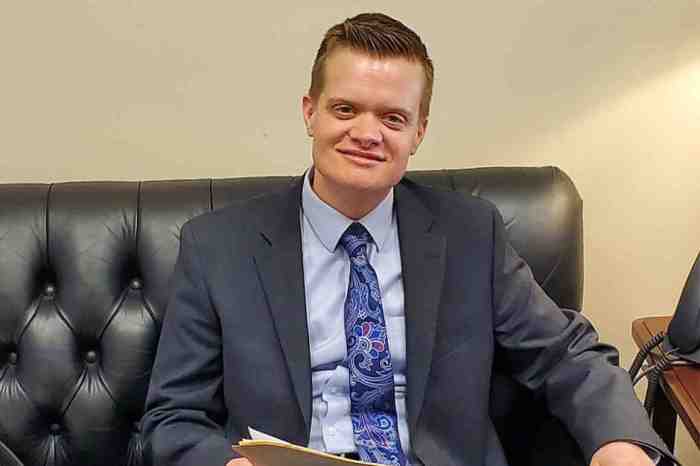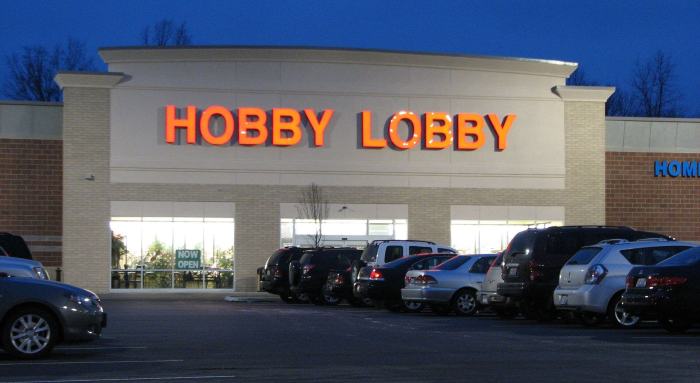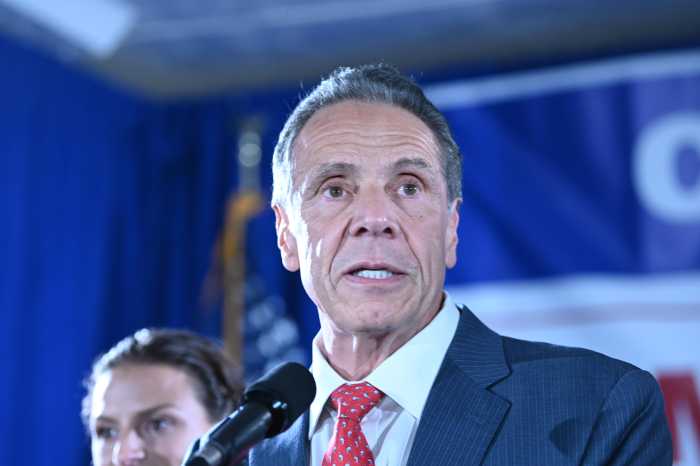US District Judge Reed O’Connor issued a ruling on October 31 in a case brought by a Christian Church and a Christian-owned business that wanted a court order to stop the Equal Employment Opportunity Commission from investigating or prosecuting them or similar employers for refusing to employ people who engage in gay sex, marry same-sex partners, or seek medical treatment to conform their bodies with their gender identity.
O’Connor, adopting a strained interpretation of a religious exemption provision in Title VII, found that the statute protects church employers from liability in such cases, and certified a plaintiff class of religiously-operated for-profit businesses after concluding that they were protected from Title VII enforcement actions by the government in such cases by virtue of the Religious Freedom Restoration Act (RFRA) and the Free Exercise Clause of the First Amendment.
O’Connor also concluded that religious businesses and other businesses that object to homosexual conduct, want to enforce gender-specific dress codes at work, and want to restrict restroom use based on “biological sex” may do so without violating Title VII, but that under the Supreme Court’s decision last June in Bostock v. Clayton County, employers may not discriminate against individuals undertaking gender transition procedures or because they engage in “bisexual conduct.”
The plaintiffs, who proposed to be “lead plaintiffs” for class action purposes, are Bear Creek Bible Church and Braidwood Management, Inc. O’Connor decided to divide up the proposed class — essentially, all employers with religious or philosophical objections to homosexual conduct, same-sex marriage, or gender transition — into three separate classes, which he labeled as Church-Type Employers, Religious Business-Type Employers, and All Opposing Employers (a group encompassing those who are opposed to homosexual conduct, same-sex marriage, and gender transition for any reason, including non-religious reasons).
Title VII of the Civil Rights Act of 1964 prohibits discrimination because of race or color, religion, sex, or national origin. Last June, in Bostock v. Clayton County, the Supreme Court interpreted the ban on sex discrimination to include discrimination because of sexual orientation or gender identity. Reacting to the decision, the Equal Employment Opportunity Commission has adopted interpretive guidelines going beyond the Supreme Court’s specific holding to address questions that the Court did not address, such as restroom policies, dress codes, employee conduct policies, and restrictions on gender transition.
Title VII has a religious accommodation provision that states that the statute does not apply to “a religious corporation, association, educational institution, or society with respect to the employment of individuals of a particular religion to perform work connected with the carrying on by such corporation, association, educational institution, or society of its activities.” Most courts have interpreted this to mean that religious entities are free to discriminate on the basis of religion in deciding whom to employ. However, most courts have taken the view that this does not exempt religious organizations from complying with the ban on discrimination because of race or color, sex or national origin. In recent years, the Supreme Court has recognized a “ministerial exception” under which religious organizations enjoy absolute freedom to decide whom to employ as “ministers,” and earlier this year the court adopted a broad interpretation of “minister” in ruling that teachers at two Catholic high schools could not bring discrimination claims against their employers because the teachers’ jobs were involved in advancing the religious mission of the schools. So far, however, the ministerial exemption has not been extended to employees whose jobs have no religious function, such as custodial or secretarial staff.
In his opinion, O’Connor adopted a much broader interpretation of the accommodation provision, construing it to allow religious institutions to discriminate based on conduct which it considered to be inconsistent with the tenets of its religion. Thus, it accepted Bear Creek’s argument that when it is discharging a gay employee for being sexually active or marrying a same-sex partner, or a transgender employee for engaging in gender transition procedures, it is not discriminating based on their gender identity but rather on their conduct, and thus the employer is protected from charges of discrimination under Title VII. Having reached this conclusion, O’Connor ruled that although Title VII bans discrimination because of sexual orientation or gender identity, the accommodation provision allows church-type employers to fire people because of conduct that violates the employer’s religious tenets, so there is no need to certify a class of religious-entity employers to take on those issues.
On the other hand, the religious accommodation provision cannot be plausibly interpreted to shelter the discriminatory actions of religiously-owned for-profit businesses, and this is where O’Connor struck out in a radical direction, finding that under RFRA and the First Amendment, Congress cannot restrict religious business owners from refusing to employ people who engage in such conduct. Here he drew upon the Supreme Court’s ruling from several years ago in the Hobby Lobby case, holding that for-profit businesses (at least those, such as Hobby Lobby, that are owned by a small group of individuals rather than being publicly traded with hundreds or thousands of shareholders) are protected under RFRA, which restricts the federal government from enforcing laws that would burden the free exercise of religion of any person. The Court was relying on a federal statutory definition of “person” that includes “corporations.” (Dissenters, led by the late Justice Ruth Bader Ginsburg, rejected the notion that a for-profit corporation has the same right to “practice religion” as a person.)
Furthermore, taking the lead from the Supreme Court’s decision last June in Fulton v. City of Philadelphia, the judge found that Title VII itself is not a law of “general application” because it does not apply to all employers. Companies with fewer than 15 employees are not covered. Title VII provides no protection against discrimination for employees who are members of the Communist Party, and allows employers located on or near Native American reservations to discriminate on the basis of race or national origin in favor of Native Americans. He insisted that these “secular” exceptions to the application of Title VII remove that statute from the category of a law of “general application.” Thus, consistent with the Fulton decision, an application of Title VII to religiously-owned businesses would be presumptively unlawful under the First Amendment’s free exercise clause unless the court were to find that the federal government has a compelling interest to prevent discrimination against people who engage in homosexual sex, same-sex marriage, or gender transition, which could only be achieved by requiring religious business-owners to allow such conduct by their employees. In Fulton, the Court concluded that Philadelphia’s interest in protecting prospective foster parents who are same-sex couples from discrimination was not sufficient to overcome Catholic Social Services’ religious objections to certifying such people as foster parents. Similarly, O’Connor concluded, religiously-owned business enjoy a constitutional right to discriminate against such people, despite what Title VII might say.
Looking to another part of the First Amendment that protects freedom of “expressive” association, O’Connor drew an analogy from the Supreme Court’s decision in Boy Scouts of America v. Dale, in which a 5-4 majority of the Court held that the Scouts could dismiss a gay man as an assistant scoutmaster, having labelled him a “gay activist,” because that organization did not want to be associated with his views about homosexuality. To get to this conclusion, O’Connor decided that when a religious person seeks to conduct their business in line with their religious values, they are creating an expressive association that, like the Boy Scouts, could exclude people with whom they does not wish to associate because of their conduct.
Engaging in a detailed analysis of the Supreme Court’s reasoning in Bostock v. Clayton County, O’Connor deemed it appropriate to certify a class of all employers who opposed homosexual conduct, same-sex marriage, and gender transition, even though not necessarily for religious reasons. But he managed to reason through to the conclusion that that “policies that enforce a sexual ethic that applies evenly to heterosexual and homosexual sexual activity do not discriminate ‘because of sex,’” so such policies do not violate Title VII. He similarly found that employers do not violate Title VII when they enforce dress codes that require employees to dress consistent with society’s gender-based dress conventions for persons based on their biological sex, but on the other hand that an employer policy against gender transition would “only function to discriminate against individuals with gender dysphoria,” so such policies would violate Title VII.
As to sex-specific restrooms, however, another issue that the Supreme Court disclaimed from deciding in the Bostock decision, O’Connor concluded that “sex-specific bathrooms do not treat one sex worse than the other,” so “employers may have policies that promote privacy, such as requiring the use of separate bathrooms on the basis of biological sex.” Consequently, he granted the plaintiffs’ motion for summary judgment on this issue.
O’Connor’s October 31 opinion does not go into detail about what orders he might issue to effectuate his ruling on the parties’ summary judgment motions, but presumably he will order the EEOC not to enforce Title VII against employers within the classes he described regarding actions which he has ruled do not violate Title VII or are protected by RFRA or the First Amendment. And presumably the Biden Administration will seek to stay any such orders pending an appeal. In the past, O’Connor had issued nationwide injunctions against various Obama Administration policies, including those protecting transgender people in education and health care, so – unlike some conservative judges – he is not reluctant to issue injunctions with nationwide effect, although sometimes he has limited such protection against enforcement to the specific plaintiffs in the case. In this case, however, where he has certified plaintiff classes, that could take in a large number of employers.
Judge O’Connor was appointed by President George W. Bush. An appeal of his decision would go the US Court of Appeals for the Fifth Circuit, 12 of whose 17 judges were appointed by Republican Presidents, including six by Donald Trump and four by George W. Bush.


































